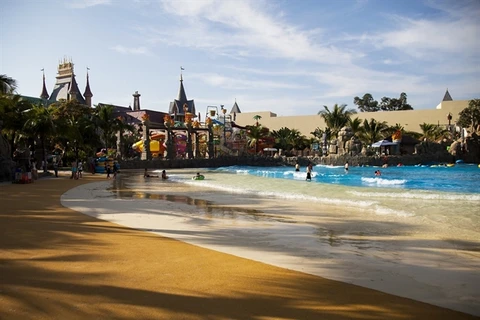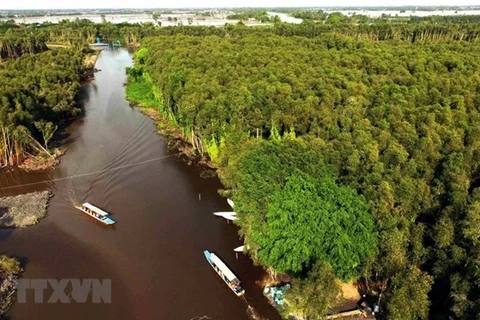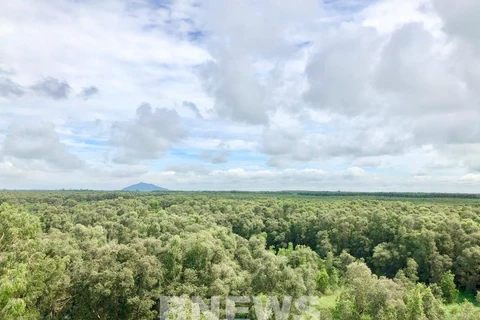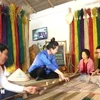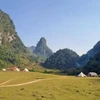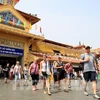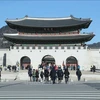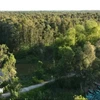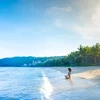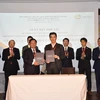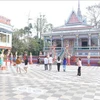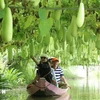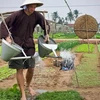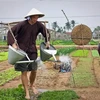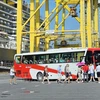HCM City (VNA) - As tourism has borne the brunt of disruptions caused by COVID-19, ecotourism and resort tourism in southeastern localities are being viewed as priorities to trigger a prompt recovery and sustainable development in the sector.
The strategy and master plan on Vietnam’s tourism development in 2020 and vision to 2030 stipulates that the Southeast is among seven regions with an important role in regards to the sector, adding that sea- and forest-based ecotourism combined with cultural and historical values are the region’s prominent products.
The southeastern region boasts a tropical equatorial climate with high and almost unchanged temperature all the year round, and is endowed with big rivers, lakes and diverse forest ecologies along with 180 km of coast lines, which experts say are great advantages in tourism.
Of note, HCM City boasts strengths in ecotourism, primarily with destinations on its outskirts, raising its competitiveness even among major tourism centres in the region and the world. An official of the city’s Tourism Department said the city’s latest tourism promotion programme has focused on local destinations in the context of the COVID-19 pandemic.
Meanwhile, Dong Nai province has invested in improving the quality of local destinations. It is noteworthy that orchard tours have gained popularity, with Long Khanh city serving around 4,000-5,000 tourists each weekend.
Before COVID-19 broke out, southern localities welcomed 50 million holidaymakers each year on average, which was still below its potential, experts noted.
Concerted and appropriate measures are greatly needed to fully tap into the strengths of each locality and the region as a whole.
Southern localities are advised to further conserve resources at ecotourism sites and apply scientific and technological achievements in the endeavour.
Communications should be bolstered to raise public awareness, especially among local residents.
Localities in the region have been working to build regionally-linked tours that showcase their outstanding destinations and products./.
The strategy and master plan on Vietnam’s tourism development in 2020 and vision to 2030 stipulates that the Southeast is among seven regions with an important role in regards to the sector, adding that sea- and forest-based ecotourism combined with cultural and historical values are the region’s prominent products.
The southeastern region boasts a tropical equatorial climate with high and almost unchanged temperature all the year round, and is endowed with big rivers, lakes and diverse forest ecologies along with 180 km of coast lines, which experts say are great advantages in tourism.
Of note, HCM City boasts strengths in ecotourism, primarily with destinations on its outskirts, raising its competitiveness even among major tourism centres in the region and the world. An official of the city’s Tourism Department said the city’s latest tourism promotion programme has focused on local destinations in the context of the COVID-19 pandemic.
Meanwhile, Dong Nai province has invested in improving the quality of local destinations. It is noteworthy that orchard tours have gained popularity, with Long Khanh city serving around 4,000-5,000 tourists each weekend.
Before COVID-19 broke out, southern localities welcomed 50 million holidaymakers each year on average, which was still below its potential, experts noted.
Concerted and appropriate measures are greatly needed to fully tap into the strengths of each locality and the region as a whole.
Southern localities are advised to further conserve resources at ecotourism sites and apply scientific and technological achievements in the endeavour.
Communications should be bolstered to raise public awareness, especially among local residents.
Localities in the region have been working to build regionally-linked tours that showcase their outstanding destinations and products./.
VNA

